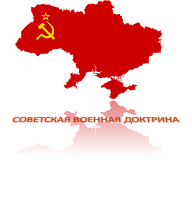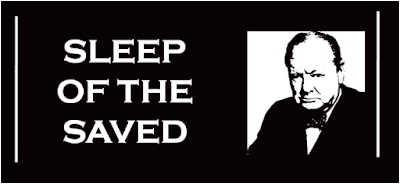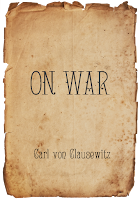The aim is to disarm the enemy
The aim of warfare is to disarm the enemy and it is time to show that, at least in theory, this is bound to be so. If the enemy is to be coerced you must put him in a situation that is even more unpleasant than the sacrifice you call on him to make. The hardships of that situation must not, of course, be merely transient-at least not in appearance. Otherwise, the enemy would not give in but would wait for things to improve. Any change that might be brought about by continuing hostilities must then, at least in theory, is of a kind to bring the enemy still greater disadvantages. The worst of all conditions in which a belligerent can find himself is to be utterly defenseless. Consequently, if you are to force the enemy, by making war on him, to do your bidding, you must either make him literally defenseless or at least put him in a position that makes this danger probable. It follows, then, that to overcome the enemy, or disarm him--call it what you will-must always be the aim of warfare.
The maximum exertion on strength
If you want to overcome your enemy you must match your effort against his power of resistance, which can be expressed as the product of two inseparable factors, viz. the total means at his disposal and the strength of his will. The extent of the means at his disposal is a matter-though not exclusively—of figures, and should be measurable. But the strength of his will is much less easy to determine and can only be gauged approximately by the strength of the motive animating it. Assuming you arrive in this way at a reasonably accurate estimate of the enemy's power of resistance, you can adjust your own efforts accordingly; that is, you can either increase them until they surpass the enemy's or, if this is beyond your means, you can make your efforts as great as possible. But the enemy will do the same; competition will again result and, in pure theory, it must again force you both to extremes.
War is never an isolated eventAs to the first of these conditions, it must be remembered that neither opponent is an abstract person to the other, not even to the extent of that factor in the power of resistance, namely the will, which is dependent on externals. The will is not a wholly unknown factor; we can base a forecast of its state tomorrow on what it is today. War never breaks out wholly unexpectedly, nor can it be spread instantaneously. Each side can, therefore, gauge the other to a large extent by what he is and instead of judging him by what he, strictly speaking, ought to be or do. Man and his affairs. however, are always something short of perfect and will never quite achieve the absolute best. Such shortcomings affect both sides alike and therefore constitute a moderating force.
War does not consist of a single short blow
The second condition calls for the following remarks: If war consisted of one decisive act, or of a set of simultaneous decisions, preparations would tend toward totality, for no omission could ever be rectified. The sole criterion for preparations which the world of reality could provide would be the measures taken by the adversary-so far as they are known; the rest would once more be reduced to abstract calculations. But if the decision in war consists of several successive acts, then each of them, seen in context, will provide a gauge for those that follow. Here again, the abstract world is ousted by the real one and the trend to the extreme is thereby moderated.
But, of course, if all the means available were, or could be, simultaneously employed, all wars would automatically be confined to a single decisive act or a set of simultaneous ones-the reason being that any adverse decision must reduce the sum of the means available, and if all had been committed in the first act there could really be no question of a second. Any subsequent military operation would virtually be part of the first-in other words, merely
an extension of it.
Yet, as I showed above, as soon as preparations for a war begin, the world of reality takes over from the world of abstract thought; material calculations take the place of hypothetical extremes and if for no other reason, the interaction of the two sides tends to fall short of maximum effort. Their full resources will therefore not be mobilized immediately.
Besides, the very nature of those resources and of their employment means they cannot all be deployed at the same moment. The resources in question are the fighting forces proper, the country, with its physical features and population, and its allies.
The country-its physical features and population-is more than just the source of all armed forces proper; it is in itself an integral element among the factors at work in war-though only that part which is the actual theater of operations or has a notable influence on it.
It is possible, no doubt, to use all mobile fighting forces simultaneously; but with fortresses, rivers, mountains, inhabitants, and so forth, that cannot be done; not, in short, with the country as a whole, unless it is so small that the opening act of the war completely engulfs it. Furthermore, allies do not cooperate at the mere desire of those who are actively engaged in fighting; international relations being what they are, such cooperation is often furnished only at some later stage or increased only when a balance has been disturbed and needs correction.
In many cases, the proportion of the means of resistance that cannot immediately be brought to bear is much higher than might at first be thought. Even when great strength has been expended on the first decision and the balance has been badly upset, equilibrium can be restored. The point will be more fully treated in due course. At this stage it is enough to show that the very nature of war impedes the simultaneous concentration of all forces, To be sure, that fact in itself cannot be grounds for making any but a maximum effort to obtain the first decision, for a defeat is always a disadvantage no one would deliberately risk. And even if the first clash is not the only one, the influence it has on subsequent actions will be on a scale proportionate to its own. But it is contrary to human nature to make an extreme effort, and the tendency, therefore, is always to plead that a decision may be possible later on. As a result, for the first decision, effort and concentration of forces are not all they might be. Anything omitted out of weakness by one side becomes a real, objective reason for the other to reduce its efforts, and the tendency toward extremes is once again reduced by this interaction.
Therefore only the element of chance is needed to make war a gamble and that element is never absent
It is now quite clear how greatly the objective nature of war makes it a matter of assessing probabilities. Only one more element is needed to make war a gamble-chance: the very last thing that war lacks. No other human activity is so continuously or universally bound up with a chance. And through the element of chance, guesswork, and luck come to play a great part in the war.
In war, the result is never finalLastly, even the ultimate outcome of a war is not always to be regarded as final. The defeated state often considers the outcome merely as a transitory evil, for which a remedy may still be found in political conditions at some later date. It is obvious how this, too, can slacken tension and reduce the vigor of the effort.
PART-2→
Following article is the excerpt from Clausewitz's ON WAR







.jpg)

